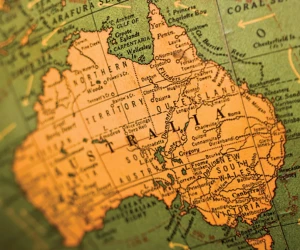Australian self-exclusion register to launch on 21 August

First announced in June 2022, BetStop will allow consumers to voluntarily self-exclude from Australian licensed interactive wagering service providers.
Operators will not be allowed to open an account or accept bets from individuals who sign up to the programme. Licensees will also be prohibited from sending marketing materials to anyone registered with BetStop.
Consumers can sign up for BetStop free of charge and complete their registration in a single transaction. Individuals can self-exclude for a minimum of three months to a lifetime.
The Australian Communications and Media Authority (ACMA) will oversee the running of the new register.
“Protecting Australians from online gambling harms is a key priority for the government,” the minister for communications, Michelle Rowland, said. “The launch of Australia’s first national self-exclusion register is a game changer. It will make it easy for vulnerable consumers to self-exclude from online wagering services.”
Further protection for players
Complementing the launch of BetStop, the government will also introduce mandatory customer pre-verification. This will require operators to verify a customer’s identity when they register for a new account and before betting.
This will replace an existing requirement to verify a customer’s identity within 72 hours. The government said this will improve protection for underage or newly registered individuals who have self-excluded through BetStop.
Other new measures include a requirement for operators to promote BetStop. This covers their websites and mobile apps, as well as marketing material sent to customers. ACMA will also run a public awareness campaign to promote the register.
A public awareness campaign will be run by the Australian Communications and Media Authority (ACMA) to promote BetStop.
“BetStop is the last of 10 measures to be implemented under the National Consumer Protection Framework for online wagering. These will empower Australians through stronger consumer protections,” Rowland said.
National Consumer Protection Framework
Two other measures on the National Consumer Protection Framework for Online Wagering, namely consistent gambling messaging and training for wagering staff, came into effect on 30 March.
Implementing BetStop and customer pre-verification were recommended during the recent parliamentary inquiry into online gambling and its impacts on those experiencing gambling harm. This final report on this was handed to the government on 28 June.
Prior to this, the minister for social services, Amanda Rishworth, in February convened the first meeting of Commonwealth, state and territory ministers since 2017. Ministers discussed the importance of customer pre-verification to ensure protection for underage or self-excluded customers.
Mandatory customer pre-verification will be enacted through an amendment to Chapter 10 of the Anti-Money Laundering and Counter-Terrorism Financing Rules Instrument 2007. The government is currently working on this and expects the process to complete by September.
This government also introduced a ban in credit cards for online wagering and strengthened the classification of gambling-like features in video games.
“With the introduction of BetStop, all measures under the National Consumer Protection Framework will be realised, with significant action delivered by our government in just over a year,” Rishworth said.
“These measures will help to minimise the harm we see as a result of online gambling. For many people, it will change their lives.
“We know minimising the harm caused by online gambling is not a set and forget exercise and I look forward to working with my state and territory counterparts on what comes next to continue this positive change.”
Possible advertising ban
A further step that the government could take is to introduce a blanket ban on all forms of gambling advertising. Last month, the parliamentary inquiry recommended a phased ban across all media.
The House of Representatives committee advised a blanket ban on all gambling advertising on both broadcast media and online, that “leaves no room for circumvention”.
However, trade body Responsible Wagering Australia (RWA), which represents the country’s largest gambling operators, criticised a potential blanket ban as a “step too far”.
The recommendation came after a RWA report found illegal offshore gambling could cost Australians close to $3bn in lost taxes. Published in May, the report covered the period from 2022 to 2027.
Coupled with the estimated grey market tax loss of $3.32bn, this could total a combined loss of $6.67bn.
Another report released earlier this year also flagged concerns about the market, specifically gambling harm. The Australian Gambling Research Centre (AGRC) found 46% of Australians who gamble are at “some risk” of gambling harms.
Key findings from the study included 77% of the population agreeing with the statement that there are “too many opportunities for gambling nowadays”. Most Australians (68%) also agreed that gambling was “dangerous for family life” and the activity “should be discouraged” (59%).
The study also found 64% of Australians responded affirmatively to the question of whether the government should play a bigger role in deciding how wagering was advertised.
Many Australians also supported outright bans of gambling advertising. Some 53% said they backed a watershed ban on all advertising broadcast before 10.30pm, compared to the 19% who opposed the measure.
